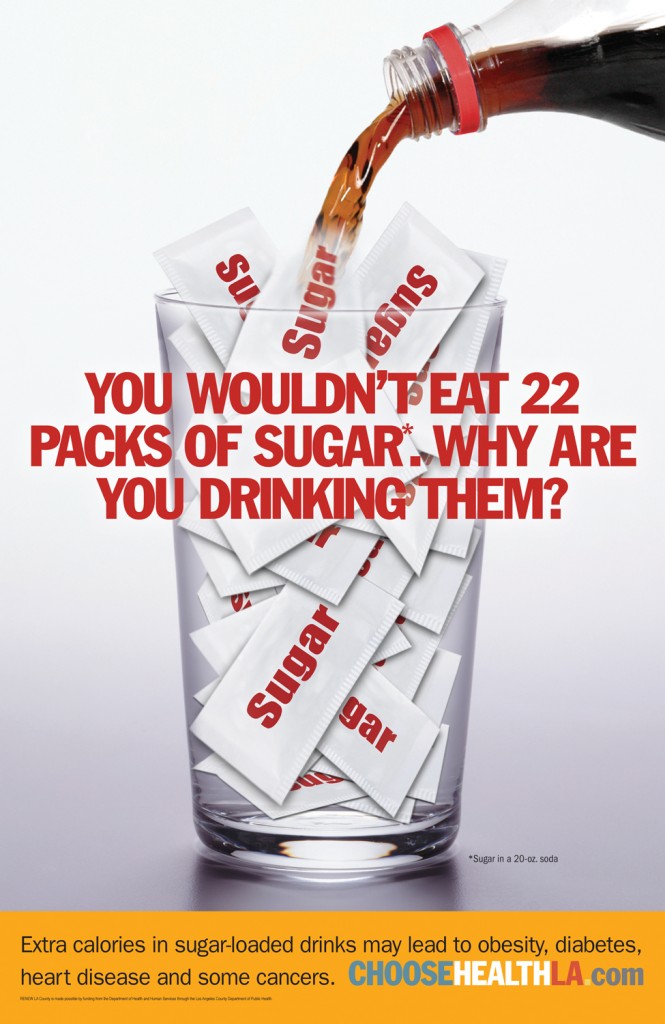Sometimes I wonder how educated our society really is! I was eating lunch in my cafeteria last week, and I saw a bunch of parents tagging their kids along. And while most kids were eating sandwiches or burgers for their lunch, I was really surprised to see almost all of them grabbing a can of soda from the refrigerator!! And just the other day I was at a kid’s birthday party, and I saw that the hosts had Pizza and Pop for the party – just cans of soda for the kids, no juice, no lemonade. When I gently asked the Mom about it, she said, “Oh, my kids love Soda, so I figured their friends would like it too!”
Seriously, I was shocked to see how lightly the community is looking towards children’s health. Yes, we all keep hearing about Childhood Obesity and ADHD, and how chain-food restaurants are trying to incorporate healthier meals in the kids’ menu. And yet parents tend to easily neglect how some choices, like giving free reign to their kids to drink soda, can actually harm their kids in the long run.
It’s an undeniable fact that kids seem to go to parties and consume large amounts of cakes and soda, and then run around like little maniacs. One reason for this may be that the environment at the party makes kids excited anyway. After all, they are getting all of the things that they like, they are playing games with friends, and even the parents seem excited. This in turn leads to bad behavior, which is only made worse by the fact that children get tired very quickly with all that excitement and exercise.
However, even though pop may not make kids hyperactive, there are a whole raft of other health reasons why you shouldn’t give too much soda to your kids. Not only can doing this set an unhealthy pattern for the rest of their lives, it also can have more immediate bad effects.
For instance, did you know that most children in the United States consume enough soft drinks every day to get their entire recommended allowance of sugar? Given the fact that there is sugar in many other foods, that means that they are getting much more sugar than they should. As a result, obesity is becoming a huge issue among children – childhood obesity has more than doubled in the last 30 years, with no less than 18% of children aged 6 to 11 being clinically obese. Even in adolescence, obesity can lay the groundwork for cardiovascular disease – in one study, 70% of obese youth already had at least one risk factor for heart problems later in life, such as high cholesterol and high blood pressure.
All of that sugar can also have a significant effect on children’s teeth. In fact, the rate of dental decay in children is on the increase, despite all our modern dentistry. Now we have reached the stage where no less than 19% of children have untreated cavities, which can lead to tooth loss and even more serious conditions such as jawbone infections. In other words, if someone is a pediatric dentist in Olathe, Orlando or anywhere else in the US, they are seeing a lot more kids with serious dental problems come in through the door. There have even been reports of toddlers under the age of five needing dental crowns because of extensive tooth decay. And, soft drinks don’t just damage teeth because of the sugar they contain – many of them also contain phosphoric acid, which eats into tooth enamel.
Diabetes is another serious condition which is on the rise – in fact, it is absolutely soaring. The number of diabetics has doubled in no less than 18 states in the last 15 years, and every state in the union now has a rate of over 6%. According to the Centers for Disease Control, the main reason for this is the increase in obesity – which is largely due to the consumption of sugary drinks and fatty foods. Given the seriousness of this condition, which can lead to an early death, as well as blindness, organ damage, circulatory problems and even amputation, no responsible parent can even think of giving their children too much sugar in their diet.
Coming back to the question of hyperactivity, while the sugar in soft drinks may not have a significant influence on children’s short-term behavior, drinks that contain caffeine such as Coke and Mountain Dew definitely can have an effect. Both adults and children experience a number of unpleasant symptoms when they consume caffeine, including nervousness, headaches, difficulty concentrating, upset stomachs and sleep disorders. However, children are much more sensitive to caffeine than adults, so relatively low quantities can cause dramatic effects. This is just one more reason why you should steer clear of sodas when it comes to your kids.
There is more than enough proof that Soda is harmful for your body. So why are you exposing the next generation to this evil??
Related Posts
- 4 Hacks To Keep Your Kids Safe Online
Maintaining online safety for children has become a significant part of modern-day parenting, with research…
- Top Tips To Keep Your Bones Healthy
As we get older, it is more important than ever to look after our bones…
- 3 Reasons Why Perfectionism Could Be Damaging
Perfectionism is often vaunted as a positive way to be. It means that you accept…



















